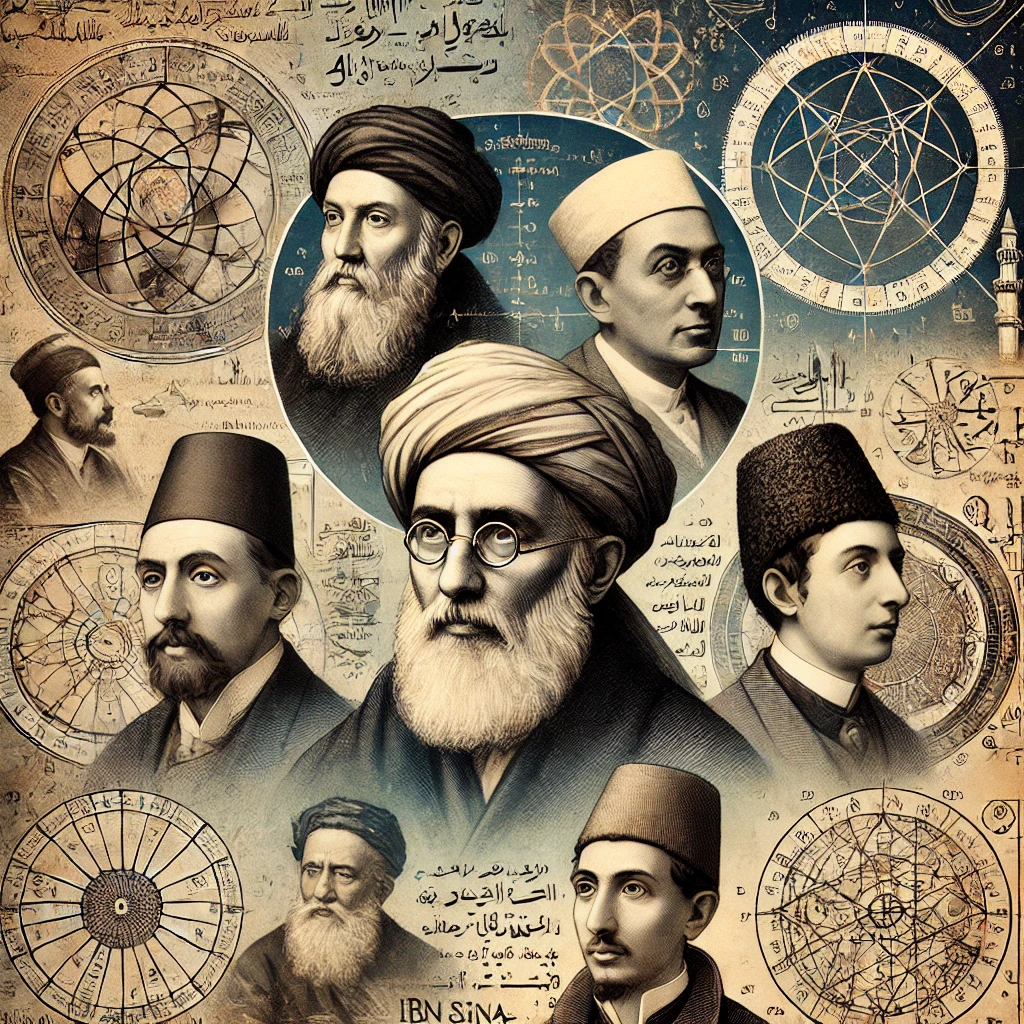Muslim scholars have made significant contributions to various fields of science throughout history. Their work has laid the foundation for many modern scientific advancements. This article highlights over 50 notable Muslim scholars and their contributions to science.
Al-Khwarizmi
Full Name: Muhammad ibn Musa al-Khwarizmi
Field: Mathematics, Astronomy, Geography
Contributions: Known as the “father of algebra,” Al-Khwarizmi’s work in mathematics introduced the concepts of algorithms and algebra. His book “Kitab al-Jabr wa-l-Muqabala” laid the foundation for modern algebra. He also made significant contributions to trigonometry and geography.
References: Wikipedia
Ibn Sina (Avicenna)
Full Name: Abu Ali al-Husayn ibn Abd Allah ibn Sina
Field: Medicine, Philosophy, Astronomy
Contributions: Ibn Sina, known as Avicenna in the West, was a polymath who made significant contributions to medicine, including his famous work “The Canon of Medicine,” which was a standard medical text in Europe for centuries. He also wrote extensively on philosophy and astronomy.
References: Wikipedia
Al-Biruni
Full Name: Abu Rayhan al-Biruni
Field: Astronomy, Mathematics, Geography
Contributions: Al-Biruni was a renowned scholar who made significant contributions to astronomy, mathematics, and geography. He accurately calculated the Earth’s circumference and studied the rotation of the Earth. His work in astronomy included detailed observations and descriptions of various celestial bodies.
References: Wikipedia
Ibn al-Haytham
Full Name: Abu Ali al-Hasan ibn al-Hasan ibn al-Haytham
Field: Optics, Mathematics, Astronomy
Contributions: Known as the “father of optics,” Ibn al-Haytham made groundbreaking contributions to the understanding of vision, optics, and light. His book “Kitab al-Manazir” (Book of Optics) laid the foundation for modern optics. He also made significant contributions to astronomy and mathematics.
References: Wikipedia
Jabir Ibn Hayyan
Full Name: Abu Musa Jabir ibn Hayyan
Field: Chemistry, Alchemy
Contributions: Known as the “father of chemistry,” Jabir Ibn Hayyan’s works laid the foundation for modern chemistry. He introduced experimental techniques and the use of laboratory apparatus in the study of alchemy. His contributions include the discovery of numerous chemical substances and processes.
References: Wikipedia
Al-Farabi
Full Name: Abu Nasr Muhammad ibn Muhammad al-Farabi
Field: Philosophy, Logic, Music
Contributions: Al-Farabi was a renowned philosopher and polymath who made significant contributions to philosophy, logic, and music. He is known for his works on political philosophy and metaphysics, and his efforts to reconcile the philosophy of Aristotle and Plato with Islamic thought.
References: Wikipedia
Al-Razi
Full Name: Abu Bakr Muhammad ibn Zakariya al-Razi
Field: Medicine, Chemistry, Philosophy
Contributions: Al-Razi, known as Rhazes in the West, was a prominent physician, chemist, and philosopher. He made significant contributions to medicine, including his comprehensive medical encyclopedia “Al-Hawi” and his work on smallpox and measles. He also made advancements in chemistry and philosophy.
References: Wikipedia
Al-Idrisi
Full Name: Abu Abd Allah Muhammad al-Idrisi
Field: Geography, Cartography
Contributions: Al-Idrisi was a renowned geographer and cartographer known for his work “Tabula Rogeriana,” one of the most detailed world maps of the medieval period. His contributions to geography include extensive travel accounts and detailed descriptions of various regions.
References: Wikipedia
Al-Zahrawi
Full Name: Abu al-Qasim Khalaf ibn al-Abbas Al-Zahrawi
Field: Surgery, Medicine
Contributions: Known as the “father of modern surgery,” Al-Zahrawi made significant contributions to the field of surgery and medicine. His comprehensive medical text “Kitab al-Tasrif” included detailed illustrations of surgical instruments and techniques, many of which are still in use today.
References: Wikipedia
Ibn Khaldun
Full Name: Abu Zayd Abd al-Rahman ibn Muhammad ibn Khaldun
Field: Sociology, Historiography, Economics
Contributions: Ibn Khaldun is considered a pioneer in the fields of sociology, historiography, and economics. His seminal work “Muqaddimah” laid the foundation for the study of human societies, historical processes, and economic principles.
References: Wikipedia
More Scholars
- Ibn Rushd (Averroes) – Philosophy, Medicine, Law Wikipedia
- Omar Khayyam – Mathematics, Astronomy, Poetry Wikipedia
- Nasir al-Din al-Tusi – Astronomy, Mathematics, Philosophy Wikipedia
- Al-Kindi – Philosophy, Mathematics, Medicine Wikipedia
- Ibn Battuta – Geography, Exploration Wikipedia
- Thabit ibn Qurra – Mathematics, Astronomy, Medicine Wikipedia
- Al-Masudi – History, Geography Wikipedia
- Ibn Zuhr (Avenzoar) – Medicine, Surgery Wikipedia
- Al-Farghani – Astronomy Wikipedia
- Al-Battani – Astronomy, Mathematics Wikipedia
- Al-Jahiz – Biology, Zoology Wikipedia
- Al-Khazini – Physics, Astronomy Wikipedia
- Ibn al-Nafis – Medicine, Physiology Wikipedia
- Al-Tusi – Mathematics, Astronomy Wikipedia
- Al-Kashi – Mathematics, Astronomy Wikipedia
- Ibn Bajjah (Avempace) – Philosophy, Astronomy Wikipedia
- Abu Ma’shar al-Balkhi – Astronomy, Astrology Wikipedia
- Al-Qurtubi – Geography, History Wikipedia
- Al-Dinawari – Botany, Astronomy Wikipedia
- Hunayn ibn Ishaq – Medicine, Translation Wikipedia
Conclusion
These Muslim scholars made significant contributions to various scientific fields, paving the way for many modern advancements. Their work continues to inspire and educate, highlighting the rich history of Islamic scholarship in science.
